And yet, the question still stands: what does leadership mean to you, and better yet, how does it play into your professional development? From what we’ve seen work for most high performers, leadership boils down to three key components: fostering skills in the next generation, engaging with your industry community, and building your personal brand.
Here, we’ve compiled how these three aspects of leadership contribute to making you a more well-rounded employee, as well as some tips to put these recommendations into action.
1. Lead from the Front
From Warren Buffett to Marcus Aurelius, Nelson Mandela to Jeff Bezos, our world’s greatest leaders possess qualities (focus, confidence, transparency, integrity, inspiration) that have been integral to their success. Even more, they all manifest themselves in a style that’s engaged, empowering, and brings out the best in their people.
Providing direction and guidance to your junior employees (while providing the tools and support needed) is, in effect, one of the most successful leadership traits we’ve seen. Sharing knowledge, then, takes place through both formal and informal channels. If you have direct reports, you should build development into their performance plans, and actively look to coach employees on the career skills that will make them (and you) more successful. You’ve garnered a stash of tips and tricks along the way that can help your junior colleagues, so share them! If you’re aware of conferences and workshops that would benefit employees under your wing, then encourage them to participate.
When you approach your own role with a pay it forward attitude, you’ll find that not only will your employees appreciate the growth in their skills, but they’ll also value the investment that you’re making in them, and will in turn, be happier employees.
Bringing out the best in the next generation of leaders isn’t just about cultivating skill development, through; fostering lifelong learning and “soft skills” that make employees and managers alike more successful often takes shape in professional mentoring programs.
2. Engage with Your Community
Professional mentoring programs may focus on career development, leadership development, or skills development. The formats can vary between personal one-on-one relationships to group formats. You can participate in a mentorship program by reaching out to your organization’s HR department, or look externally to organizations like MicroMentor (if you have an entrepreneurial bent). Perhaps one of the most effective ways to build your your leadership skills is to actually become a mentor—which you can easily do through organizations like Serve.org, Imentor.org, and Mentoring.org.
Community engagement doesn’t necessarily have to follow such formal paths, however. If you’re short on time, are looking for a more informal environment in which to hone your soft skills, or want to find opportunities that are strictly expertise-driven, you might want to look for alternative options. These options could include volunteering for an industry organization (for example, opportunities that leverage your marketing skills or web development skills) or contributing to a career skills platform like Brightmind. Ultimately, framing your skillset within the context of your community goes a long way towards building your brand—and, ultimately—your future.
3. Build Your Brand, Build Your Future
Think about what’s gotten you this far: likely, a mix of dedication, a lifelong learning approach, the emotional intelligence to sense what’s working and what’s not for your team and your employees, formal education, and the informal learning opportunities have all informed the career pathway you’ve taken. All these factors—whether you realize it or not—form the foundation of what’s called your personal brand.
Compassionate Leadership and Career Success
Compassion is on the rise both as a component of individual and corporate leadership (i.e. the “conscious capitalism” movement), and while integrating a “pay it forward” attitude aligns with the ethos behind becoming a mentor and sharing your knowledge, it can become a foundational element to creating your personal brand.
Link: HBR.Org
What Defines You?
Think about what makes you “you” on the individual contributor level, as how your personal brand translates to the context of your organization. Your personal brand can be broken down into several components: your technical skill set, your soft skills and how you use emotional intelligence, and your leadership style. From an organizational standpoint, your personal brand and expertise manifest as your career pathway. Below, a few questions you should ask yourself as you think about how to build a personal brand:
What technical skills do you have now, and which ones will you need to grow to progress your career?
What soft skills have you developed, and how has your emotional intelligence contributed to your personal growth?
What’s your leadership style, and how does it play into the relationships you have both with managers and employees?
Ultimately, connecting the dots of who you are as an individual with who you are as an employee is an exercise in establishing your expertise, and the time that you invest in yourself to create this brand foundation is really an investment in your future.
The best way to predict the future is to create it. - Abraham Lincoln
Exercise Your Leadership Skills
Now that the gears are turning on how you’ll lead, when you’ll lead, and what defines your leadership style, start thinking about where you’ll lead. We’ve mentioned a few formal and informal places to put your leadership skills into practice, but let’s dig deeper into the career skills platform, Brightmind.
With a select number of high-growth career pathways, this digital learning solution provides the community and instruction fundamental to skill acquisition. Without the red tape and formality of most formal digital skills platforms, Brightmind allows users to share their knowledge even while learning from more senior industry colleagues.
The best part about the Brightmind movement to democratize professional education? It’s free, because the team behind Brightmind believes that for the next generation of leaders to emerge, you shouldn’t have to pay. Experience Brightmind for yourself by signing up for our beta.


